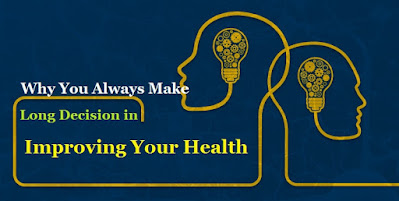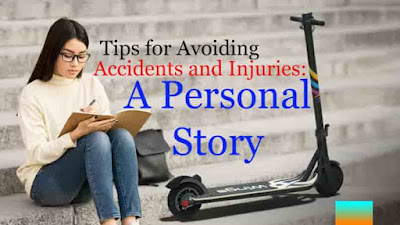Why You Always Make a Long Decision in Improving Your Health
Good Habits Build Strong Values
Do you know that something is holding you back from improving your life right now? Could it be a resource such as money, better living conditions, access to specific information or services? While I do not count the number of things that can improve our circumstances, our thoughts often stop us because we believe them.
For example, I was talking to a client recently who admitted that she almost came to the gym in the morning. His thoughts reassured him that he was very tired, so he realized that physical exercise was useless. However, he arrived at the gym after all and not only felt better, he could not believe how his thoughts had tormented him an hour earlier. If he had lost his temper, he could have avoided going to the gym and lamenting his later choices.
Have you experienced similar feelings in some areas of your life? It happened to me many times; however, I have learned not to trust my thoughts but to devote myself to my goals and objectives instead. Our thoughts are saboteurs that prevent us from achieving our highest goals and objectives. Evolutionary psychologists believe that this destruction is a flexible way to keep us safe from danger. Given the land, we are living in the present day, and the danger that we faced thousands of years ago is far from over. At present, our biology has not changed given that we still use the same mental framework to make important decisions.
So, what does this mean for you? One option for improving your health, which can have a changing effect. The key is to better understand our thoughts, so we do not allow ourselves to be influenced by the saboteur who tries to convince us that things are worse than they are. These days, everyone is talking about wanting more encouragement. I do not accept being motivated by a problem because it will bring you so far and if you lose motivation, then what? We need to set realistic goals and develop good habits that lead to stability. I’m not talking about a character who describes you as a good or bad person. I’m talking about a character where you commit to your goals and objectives and follow through on them, whatever. Therefore, if you intend to exercise four days a week, the character says you come out four days a week unless you are sick.
Are you comfortable with the idea that the next choices you make can improve your health in ways you never thought possible? Now I hear him say: “Tony, I make decisions every day and none of them change my life.” Granted, but do you make decisions in the area of fear, regret, and anxiety or is it based on motivation and enthusiasm? The latter strengthens your commitment to your goals and objectives, where the former weakens you. Your commitment is tied to your personality and when we break our promises, we lose confidence in ourselves. We must do what we say we will do, as long as it is tied to the right motive. Therefore, we must have a high understanding of our real intentions. For example, are we working to improve our lives or to avoid some unpleasant experience?
Accept the End of Our Choices
Our choices can improve our health because they support our values and our purpose. Psychologists say that the goal of happiness is to get as much pleasure as possible and to avoid pain as much as possible. The problem is that pain can build character and strengthen our commitment to our goals. Pain allows us to recognize what is important to us, and to refrain from unnecessary or reprehensible actions. We need to be careful that we do not become complacent, but that we understand better our motives. Do you begin to feel better that your decisions could lead to a life of uncertainty if you were clear on your goals? Doing so requires self-knowledge, which is linked to wisdom and knowledge.
Some of the wisest people I have ever met are those who have experienced much hardship and suffering in their lives. They had endured pain and gained valuable insight into their journey. Oscar Wilde once said: “Experience is the toughest teacher; it gives you a test before the lesson.” Yet many people ignore the lessons until it is too late, and yet, they repeat the same mistakes. In many ways, they are like rats roaming the path, not understanding the rules of the game. But our choices can be powerful and change the course of our destiny if they are in line with our highest goals. We do not have to make difficult decisions that affect our lives. We may be able to do that when we are young, but as we grow older, we need to learn from our experiences and make wise decisions.
Ultimately, we should trust and accept the outcome of our decisions, instead of believing that life is hard. We are a strong people and many are unaware of this power and are committed to the cause. Pain and happiness help us to learn how our decisions can affect our lives if we examine them carefully. Knowing this, I would like you to think about your recent decisions. Are they aligned with your highest purpose, or are they made in a hurry? Ask yourself: “What is important to me and what am I willing to sacrifice to achieve this?” Live by those principles and I assure you, the next choices you make can improve your life beyond your big dreams.
Tips for Avoiding Accidents and Injuries: A Personal Story
About 18 months ago, my daughter had a car accident, and her knee was fractured. After about six months she was able to walk again, but could not bend until the last 90 degrees of the knee, making walking and other exercises difficult. This changed her life and began to affect her back badly.
At the time of the accident, she was driving a little Nissan Micra on a 450 km journey from university to our home for a mid-year holiday. She leaned to a huge pit, and the car went into a skid and hit a tree at 100 km / h. The airbag saved his face and body, but the knee was fractured.
Since it happened there have been so many things I wished I had told her about driving. I wished I had stressed the importance of the little things that could have saved her all the pain and suffering she had to endure as a young lady.
So I’m going to say them in this article. Maybe it will save a life, or save some suffering. I hope so. So in random order, here goes:
When driving a small car, and you have it loaded with all your stuff, the car handles differently from when it is empty. It wallows. So avoid sudden movements, sudden swerves. The weight of the car will keep it going in a straight line. In those circumstances, it is often better to hit the pothole, or the animal, or the rock, rather than swerving.
When approaching a rise in the road which you cannot see over, slow down unless you know the road well. Be extra attentive as you come over the rise. Then once you can see the road is clear ahead you can relax a little again.
When the car is fully loaded, go to the service station and get them to pump the tires a little harder. About 20% to 30% harder should do it. This will give you more control on the road and is recommended by the tire manufacturers anyway. Also, keep your average speed down, perhaps dropping it by about 10%. A heavy car takes a lot longer to stop.
Never take your eyes off the road. Learn where all your controls are in the car so that you can adjust things without looking. You can practice this while waiting at traffic lights – you’re not doing anything else anyway! And of course, never use your mobile cell phone while driving; that is worse than driving while drunk, your concentration is even less on what’s happening around you.
Don’t put loose stuff around you in the car, especially heavy stuff and things like glass bottles and so on. In a collision these things become missiles. A glass bottle with a small plant in it traveled from the back seat of the car and missed my daughter’s head but punched a hole clean through the windscreen.
Once you’ve learned to drive, get onto a skid pan and practice getting into and out of skids so you can get the feel of your car. If there is no skid pan near you, try and find a large, flat area of loose gravel and practice going sideways there. Make sure you have LOTS and LOTS of room to come to a safe stop if you lose control in a skid. Start slowly and gradually build up your confidence. When you know what to do in a skid it makes so much difference when you get into one accidentally.
If you’re going to buy a small car, watch the safety crash videos on YouTube and see how your desired car handles the crash tests before deciding to buy it. Some of the Chinese cars just crumple up and crush the poor dummy inside!
In bad weather, slow down a lot. If it’s icy, go slowly. Let your family or friends know where you are at regular intervals, or let one of them track you on your mobile phone.
I hope this helps. My daughter has just had a second operation to reconstruct her knee so that she can bend it properly, and it seems to have gone well, so I am hoping that she will get her life back. There’s so much she still wants to do! So be careful, go slow, and be safe. May all your journeys be happy ones.

